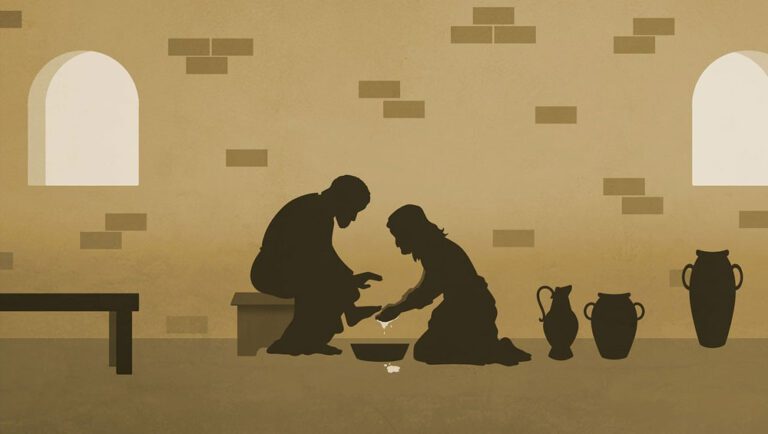I remember the phone call that changed everything. It was a Tuesday morning when my supervisor delivered the news. What she said sent my carefully planned life into chaos. “The company is restructuring,” she said. “And your position has been terminated.”
I sat in my car afterward, feeling overwhelmed and anxious about my future. How would I pay my bills. I only had a couple of thousand dollars in savings. How would I survive the coming months. After a while, my thoughts turned to other people experiencing similar crisis situations.
Job losses, health challenges, relationship breakdowns, financial struggles. These traumatic events seem to strike without warning. They leave many people feeling helpless and uncertain about what comes next.
What I discovered during that difficult season transformed my perspective on how to overcome crisis. I learned that what we often see as devastating setbacks can become the catalyst for our greatest breakthroughs.
The key lies in understanding that every crisis is temporary. It contains hidden opportunities for those who know how to look for them.
Key Takeaways
- Crisis is seasonal: Every difficult situation is temporary, not permanent.
- Perspective shapes reality: How you view your crisis determines your response and outcome.
- Faith requires action: Believing things will improve must be coupled with practical steps.
- Crisis creates growth: Tough times force necessary changes and reveal hidden potential.
- Opportunity lives within problems: Every crisis contains seeds of new possibilities.
- Your work transcends your job: True security comes from developing your unique gifts, not relying on employment.
- Resources exist within you: You already possess what you need to overcome your current situation.
Understanding the True Nature of Crisis in Your Life

When we’re in crisis mode, everything feels permanent. The stress and anxiety seem endless. Our emotional well-being suffers as we struggle with anxious feelings about an uncertain future. But here’s what I’ve learned about experiencing a crisis. It’s fundamentally seasonal in nature.
The Bible tells us in Ecclesiastes 3:1 (KJV):
“To everything there is a season, and there is a time for every purpose under heaven.”
This profound truth means that nothing in life remains static. Just as winter always gives way to spring, your current crisis will eventually pass.
Why Crisis Feels So Overwhelming
During times of crisis, our minds naturally focus on worst-case scenarios. We experience stress responses that trigger fight-or-flight reactions. This makes it difficult to think clearly.
The traumatic event or difficult situation dominates our thoughts. This creates a sense of helplessness that can feel crushing.
This is normal human behavior. When we face the loss of a loved one, job termination, health challenges, or financial difficulties, our body and mind go into protection mode.
We’re wired to perceive threats as permanent dangers. This served our ancestors well but often works against us in modern crisis situations.
The Power of Seasonal Thinking
Understanding that crisis is seasonal provides immediate emotional support. When you’re coping with crisis, remember that seasons guarantee change.
Winter doesn’t last forever. Your current difficult emotions and circumstances are temporary phases, not permanent conditions.
This perspective shift helps reduce the intensity of stress and anxiety. Instead of asking “Will this ever end?” you can ask “How can I best navigate this season?”
This subtle change in thinking opens your mind to solutions rather than keeping you trapped in worry.
Key Principles for How to Overcome Crisis

Never Make Permanent Decisions During Temporary Problems
This is one of the most crucial steps to manage crisis. Avoid permanent responses to temporary situations. When we’re feeling overwhelmed, we often want quick relief from our discomfort. This leads to hasty decisions that can damage our long-term well-being.
I’ve seen people abandon marriages during rough patches that could have been worked through. Others have given up on dreams and goals because of temporary setbacks. Some have made drastic financial decisions that created bigger problems later.
Before making any major life changes during times of stress, pause and ask yourself. “Am I responding to a temporary situation with a permanent solution?” Give yourself time and space to process difficult emotions before taking irreversible actions.
Faith Must Be Coupled with Action
During times of need, many people rely solely on hope and positive thinking. While maintaining faith is crucial for emotional well-being, it’s not enough by itself. As the Bible states in James 2:14 (NLT):
“What good is it, dear brothers and sisters, if you say you have faith but don’t show it by your actions? Can that kind of faith save anyone?”
True resilience comes from combining belief with practical action. If you’re coping with job loss, faith means believing you’ll find new opportunities. Update your resume, network, and develop new skills.
If you’re managing a health crisis, have faith and trust God for your healing. But also follow medical advice and maintain healthy habits.
This principle helps you cope with crisis by giving you a sense of control and progress. You’re not just waiting for things to change. You’re actively participating in creating positive outcomes.
The Hidden Benefits of Crisis

Crisis as a Catalyst for Growth
Crisis often serves as the most powerful catalyst for personal development. When life is comfortable, we rarely push ourselves to grow or change. It’s human nature to stick with familiar patterns, even when they’re not serving us well.
But experiencing a crisis forces us to develop new capabilities. You discover strengths you didn’t know you possessed. You learn to build resilience through necessity. The stress reduction techniques you develop during tough times become valuable life skills.
I’ve seen people discover hidden talents during unemployment. Others have developed deeper relationships through health challenges. And many have found new purpose after major losses. Crisis has a way of stripping away the non-essential and revealing what truly matters.
How Crisis Improves Your Health and Well-being
Crisis initially creates stress. But successfully navigating difficult times ultimately strengthens your behavioral health. You develop better coping mechanisms and stronger emotional regulation. You also increase in confidence in your ability to handle future challenges.
Crisis also tends to simplify life in beneficial ways. You focus on basic needs and core relationships. Material possessions become less important. This natural stress reduction often leads to improved mental clarity and better priorities.
Many people report that their most difficult seasons taught them the most valuable life lessons. They learned self-care practices, and discovered the importance of emotional support from others. They developed a deeper appreciation for everyday blessings.
Transforming Crisis into Opportunity

Adopt an Opportunity-Focused Mindset
Here’s something that completely changed how I view crisis. In Japanese and Chinese languages, the word for “crisis” also means “opportunity.” This isn’t linguistic curiosity. It represents a fundamental difference in how entire cultures approach difficult times.
Bombs destroyed their cities in World War II. In this crisis the Japanese saw massive opportunity for rebuilding better than before. They became global leaders in technology and manufacturing. They turned destruction into an opportunity for innovation.
You can apply this mindset to your current crisis. Instead of asking “Why is this happening to me?” try asking “What opportunities might this situation create?” This shift in perspective will help you cope with crisis more effectively. Crisis often reveals possibilities you couldn’t see before.
Focus on Unchanging Human Needs
In times of crisis, certain human needs remain constant regardless of economic conditions or social upheaval. People always need food, shelter, healthcare, education, entertainment, and emotional connection. They need help managing stress, maintaining relationships, and finding meaning in life.
Smart entrepreneurs study these permanent needs during difficult times. They create solutions that serve people better, faster, or more affordably. Many successful businesses have been born during economic downturns. Their founders saw problems that needed solving.
This principle applies even if you’re not interested in starting a business. You can build resilience by developing skills that serve these basic human needs. Healthcare workers, teachers, and counselors often have more job security because they serve essential needs.
Discovering Your True Work Beyond Your Job

Understanding the Difference Between Jobs and Calling
One of the most liberating realizations during crisis is understanding the difference between your job and your work.
Your job is what you’re trained to do – a role that can be eliminated, restructured, or made obsolete. Your work is what you were born to do – your unique contribution to the world that no one can take away.
When you lose a job, you don’t lose your abilities, creativity, or value as a person. You still have all the skills, experiences, and insights you’ve accumulated over the years. These become the raw materials for creating new opportunities.
I heard of a woman who worked as a hotel housekeeper but had an extraordinary gift for baking. When she lost her job during an economic downturn, she focused on developing her natural talent. Within a year, she had built a successful cookie business that employed over 180 people. Her gift was always there – the crisis simply forced her to recognize and develop it.
Identifying Your Unique Gifts
To help you cope with crisis and build long-term security, spend time identifying your natural abilities. What activities energize you? What problems do you instinctively know how to solve? What do friends and family often ask for your help with?
Your gifts might not seem “professional” at first glance. Maybe you’re excellent at organizing spaces or great with children. Maybe you’re skilled at fixing things, or have a talent for making people feel comfortable. These everyday abilities often contain the seeds of meaningful work and income.
The key is to view your gifts as valuable contributions not just hobbies. During difficult times, people are willing to pay for services that make their lives easier, better, or more enjoyable.
Practical Steps to Manage Crisis and Build Resilience

Inventory Your Current Resources
When you’re experiencing a crisis, start by asking yourself: “What do I have right now?” This biblical principle appears throughout scripture.
When Moses felt inadequate for his calling, God asked: “What is in your hand?” (Exodus 4:2). When a widow faced financial ruin, the prophet asked: “What do you have in your house?” (2 Kings 4:2).
Make an inventory of your resources:
- Skills and knowledge: What can you do that others find valuable?
- Physical assets: What items in your home could generate income?
- Relationships: Who in your network might need your services or know someone who does?
- Time and energy: What hours are available for new activities?
- Space: Could part of your home be used for business purposes?
This exercise helps you cope with crisis by shifting focus from what you lack to what you have. You’ll often discover more resources than you initially realized.
Start Small and Scale Gradually
Don’t wait for perfect conditions to begin taking action. Start with what you have, where you are, right now.
If you have a skill or service to offer, begin by helping friends and family for free or at a low cost. This allows you to refine your abilities while building a reputation.
As demand grows, gradually increase your prices and expand your services. Many successful businesses started this way – as small experiments that proved their worth over time. This approach reduces stress because you’re not risking everything on an untested idea.
Develop Multiple Income Streams
One lesson crisis teaches is the danger of depending on a single source of income. Building resilience means creating multiple streams of revenue, even if they start small. This might include:
- Freelance work using your professional skills.
- Selling products you create or curate.
- Teaching skills you possess.
- Providing services your community needs.
- Investing in assets that generate passive income.
Having multiple income sources provides both financial security and peace of mind. If one stream is disrupted, others can continue supporting you while you adapt.
Maintaining Emotional Well-being During Times of Stress

Practice Self-Care Without Guilt
During crisis, taking care of your physical and mental health isn’t selfish – it’s essential. You can’t effectively help others or solve problems when you’re depleted.
Regular self-care practices help you manage stress and maintain the energy needed for positive action.
This includes basic needs like adequate sleep, nutritious food, and regular movement. It also means setting boundaries with people who drain your energy and seeking emotional support when you need it.
Consider meditation, prayer, journaling, or other practices that help center your thoughts.
Build Your Support Network
Isolation makes crisis feel worse. Humans are designed for community, especially during difficult times. Don’t hesitate to reach out to friends, family, religious communities, or professional counselors for emotional support.
Sometimes pride prevents us from asking for help, but accepting support is actually a sign of wisdom, not weakness. Others often want to help but don’t know how. Giving them specific ways to assist you strengthens relationships and lightens your burden.
Focus on What You Can Control
Crisis often involves circumstances beyond our control. These can trigger stress responses and feelings of helplessness. While you can’t control external events, you always have power over your responses, attitudes, and actions.
Make daily lists of what you can influence versus what you cannot. Spend your mental and emotional energy on your sphere of control. This practice reduces anxiety and increases your sense of personal agency.
Finding Meaning and Purpose Through Crisis

View Crisis as Preparation
Consider the possibility that your current crisis is preparing you for something bigger. Many successful people describe their most difficult periods as essential training for future opportunities. The skills you develop, the character you build, and the insights you gain during tough times often become your greatest assets.
This perspective doesn’t minimize the pain of crisis, but it can provide hope and motivation to persevere. Instead of just enduring difficulty, you’re actively learning and growing through it.
Help Others Navigate Similar Challenges
One of the most meaningful ways to overcome crisis is to help others facing similar situations. Your experience is valuable to someone else in their difficult time. This service gives purpose to your suffering and often opens doors to new opportunities.
Many successful counselors, coaches, and entrepreneurs built their careers around solutions they first developed for their own problems. Your crisis might be the foundation for your life’s most important work.
Conclusion
Crisis doesn’t define you – how you respond to it does. While you can’t always control what happens to you, you have tremendous power over what happens within you and through you.
Your current crisis, difficult as it may be, contains seeds of your future success. The key is learning to recognize and nurture those seeds while maintaining faith that better days lie ahead.
Remember: you are stronger than your current circumstances. You are more resourceful than you realize, and closer to breakthrough than you might think. Your crisis is not the end of your story. It’s the beginning of a new chapter filled with possibilities you haven’t yet imagined.
Frequently Asked Questions
Q. How long does it typically take to overcome a major crisis?
A. The timeline varies depending on the type and severity of the crisis, as well as individual circumstances. Financial crises might resolve in months, while grief from loss can take years to process. Focus on daily progress rather than expecting a fixed timeline. Remember that healing and recovery are rarely linear processes.
Q. What if I feel too overwhelmed to take any action?
A. Start with the smallest possible step. If job searching feels overwhelming, spend 15 minutes updating one section of your resume. If financial planning seems impossible, begin by tracking expenses for one week. Small actions build momentum and confidence for larger steps. Consider seeking professional help if feelings of helplessness persist.
Q. How can I maintain hope when everything seems to be going wrong?
A. Focus on evidence that situations do change over time. Look at past challenges you’ve overcome, even small ones. Connect with others who’ve navigated similar crises successfully. Practice gratitude for what remains stable in your life.
Q. Should I completely abandon my previous career path during a crisis?
A. Not necessarily. Crisis often reveals new possibilities, but don’t automatically discard valuable experience and relationships. Instead, consider how your existing skills might be applied in new ways or industries. Sometimes the solution involves adapting rather than abandoning your professional foundation.
Q. How do I know if I need professional for managing crisis?
A. Seek professional support if you experience persistent sleep disruption, inability to function in daily activities, thoughts of self-harm, substance abuse, or social isolation lasting more than a few weeks. Professional counselors can provide tools and perspectives that accelerate recovery and prevent long-term negative effects.
Q. What if my crisis involves factors I can’t change, like health issues or family problems?
A. Even unchangeable circumstances offer opportunities for growth and adaptation. Focus on managing your response, developing coping strategies, and finding new ways to create meaning and purpose within your constraints. Many people discover unexpected strength and wisdom through learning to thrive despite limitations.






